A Night Under the Moon
.From Hevelius’s Moon to Marcin Masecki’s music – a journey of wonder
10/30/20252 min read
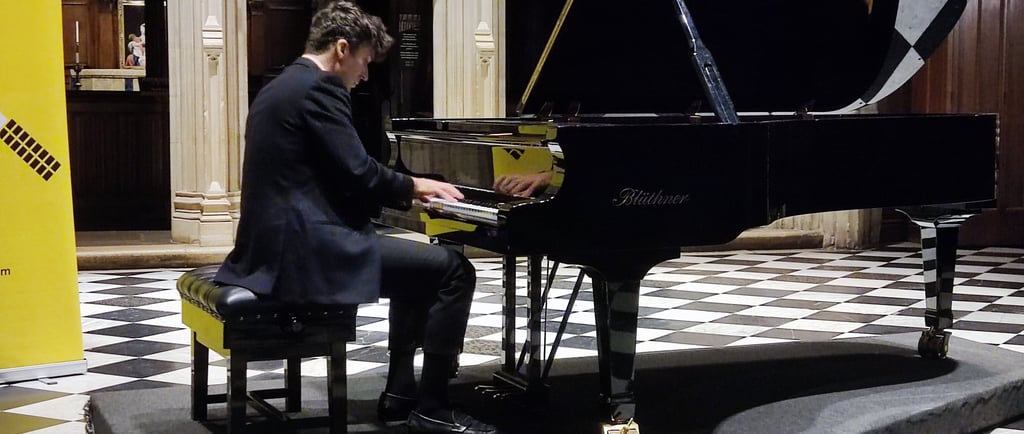

Last night, in the beautiful surroundings of the University Church of St Mary the Virgin, I had the privilege of attending — and saying a few words before — a quite extraordinary concert by the Polish pianist and composer Marcin Masecki. The event formed part of this year’s Oxford Science and Ideas Festival, and it was an evening that seemed to distil everything Oxford does best: curiosity, creativity, and connection.
In my brief remarks before the performance, I reflected on the richness of Polish culture and its long association with Oxford — on how scholars, artists and thinkers from Poland have, for generations, enriched our city’s life. I spoke too about Johannes Hevelius, whose seventeenth-century lunar map, Selenographia, inspired the concert. Hevelius invited the world to look upwards and wonder; Marcin, I suggested, would invite us to listen and dream.
It was a joy to share the platform with Moira Darlington, Deputy Lieutenant of Oxfordshire, who spoke quite beautifully about the enduring friendship between our nations and the value of cultural exchange. Moira was accompanied by her husband Stephen, freshly returned from a fortnight’s work in Georgia, while I was joined, as ever, by Mark. It was, in every sense, an evening of companionship — musical, civic and personal.
The concert itself unfolded in two halves. The first was a stunning improvisation inspired by the morning’s lecture at the Bodleian, where Hevelius’s intricate lunar drawings are currently on display. Marcin seemed to translate those delicate etchings into sound — drawing out the Moon’s shadows and seas with remarkable sensitivity.
The second half offered four shorter improvisations: one on Beethoven’s Moonlight Sonata, another on Debussy’s Clair de Lune, and two 1950s South American waltzes, each, in their own way, lunar in spirit. The result was dazzling — a fusion of classical precision, jazz freedom and Latin warmth, performed with intelligence, wit and grace.
What struck me as much as the sound itself was the physicality of the performance. The platform beneath the grand piano actually moved as Marcin played, such was his energy. Though his hands alone touched the keys, his entire body — torso, legs, even his feet — seemed to become part of the instrument. It was as though he and the piano were in conversation, creating music together in real time, each note shaped by breath and motion.
Marcin Masecki is a musician of rare range and imagination. Whether performing Bach, composing symphonies, scoring films, or re-imagining Polish dance tunes from the inter-war years, he moves with ease between traditions, creating something fresh and wholly his own. To hear him in Oxford, beneath the church’s great fan-vaulting, was to witness that creative restlessness at its very best.
My heartfelt thanks go to Ewa Gluza, Chairperson of the Oxford Polish Association, whose leadership and dedication have done so much to strengthen the bonds between Oxford’s Polish and British communities. Since 2011, OPA has worked tirelessly to connect people, celebrate Polish heritage and build bridges across cultures and generations. They are, quite simply, part of what makes Oxford the generous and open-hearted place it is.
And my thanks also to Dr Dane Comerford, Director of the Oxford Science and Ideas Festival, whose imaginative programming continues to bring together art and science, faith and reason, wonder and discovery.
If Hevelius once mapped the Moon with ink and patience, Marcin Masecki mapped it again last night in sound — a map of emotion, curiosity and light. It was, in every way, a night to remember.
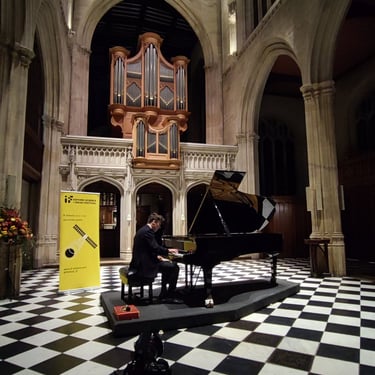
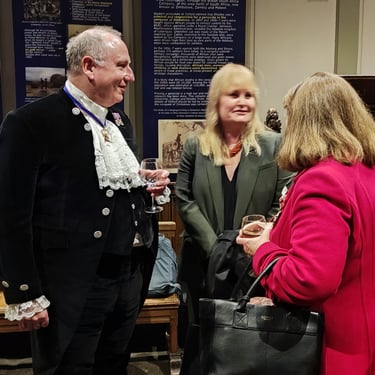
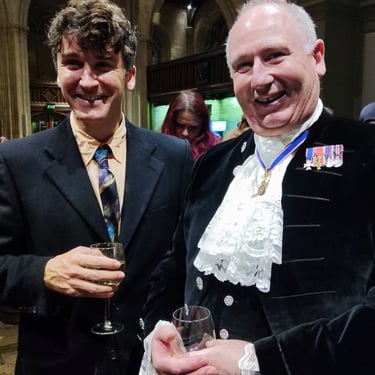
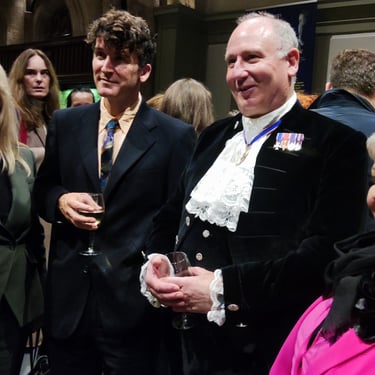
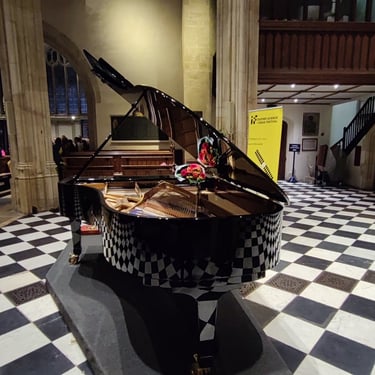
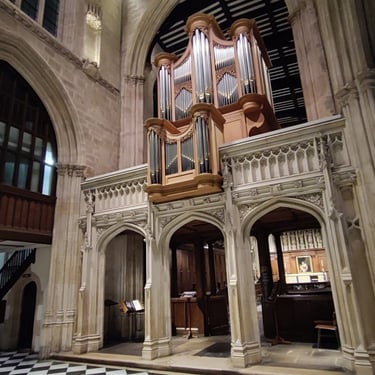
The Oxfordshire Shrievalty
Championing justice and community across Oxfordshire
© 2025. All rights reserved.
